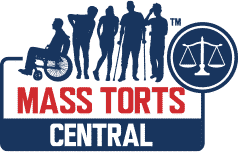FDA Studies and Recalls Regarding Zantac

Zantac was a popular drug used to treat heartburn and other acid-related issues. Many people used the over-the-counter versions or received a prescription from their doctor. The U.S. Food and Drug Administration (FDA) requested that all forms of Zantac made with ranitidine be removed from store shelves because of the possibility of cancer-causing carcinogens.
When people develop cancer, they often have extensive medical bills and must miss work because of the treatments. Because of these and other losses, people have sued its manufacturers. So far, there has been one Zantac settlement where a claimant received compensation for damages and losses. Attorneys have the knowledge to navigate these complex legal claims.
Why Are Zantac Lawsuits Being Filed?
People who have developed cancer because of Zantac use have filed lawsuits against its manufacturers. The plaintiffs allege that Zantac’s makers knew that Zantac with ranitidine contains a known probable carcinogen, Nitrosodimethylamine (NDMA). The United States Environmental Protection Agency (EPA) classifies NDMA as a B2 carcinogen and studies have indicated that it can cause certain types of cancer.
The lawsuits claim that manufacturers knew this drug was dangerous and did not adequately warn the public.
Over the course of medical treatment for cancer, and coming to terms with their new reality, victims have naturally accumulated damages, including:
- Medical bills: Any out-of-pocket costs they had to pay for cancer treatments, medications, hospitalizations, doctor’s visits, surgeries, or other medical treatments. This could also include the estimated costs of their future medical bills if they require further treatment.
- Lost income: If they can no longer work or had to miss work for cancer treatments or because they were sick, they could recover lost income damages. This can also include future lost income if they cannot return to work at all or in the same capacity.
- Pain and suffering: Cancer treatments can cause a lot of pain and anguish. The drugs they use to treat cancer can make someone miserable for a long time. An attorney could fight for their client to receive compensation for pain and suffering if their client dealt with physical pain during cancer treatments.
- Emotional distress: Going through cancer can cause a lot of emotional turmoil and negative psychological impacts. If someone has developed emotional issues, an attorney can help to calculate the value of their emotional distress damages.
Attorneys can help tremendously through the Zantac lawsuits. Many attorneys are familiar with these lawsuits and the qualifications to join. They can also fight for their clients to receive the maximum compensation for their losses.
Status of Zantac Lawsuits
Zantac lawsuits are moving forward quickly as the plaintiffs maintain the manufacturers knew the drug contained dangerous levels of the probable carcinogen NDMA. Currently, over 2,000 victims have filed lawsuits. They are in multi-district litigation (MDL). An MDL means that each plaintiff files an individual lawsuit that gets consolidated and is transferred to a single federal court.
MDLs are often formed when multiple plaintiffs sue the same defendant for a similar reason. The advantages of an MDL are to save time and money and to ensure similar outcomes occur with similar cases. In an MDL, multiple law firms still represent their own plaintiff.
The courts have consolidated the Zantac MDL to the Southern District of Florida (West Palm Beach). U.S. District Judge Robin L. Rosenberg presides over the cases.
Zantac Class Actions
Class action lawsuits are similar to MDLs in that they both have a grouping of people suing the same defendants. They are different though, for many reasons. The differences include the following:
- In a class action, a large group is suing the defendants together. In an MDL, each plaintiff files a separate lawsuit against the defendant.
- In a class action lawsuit, one law firm represents all of the plaintiffs. In an MDL, each plaintiff has their own lawyer and law firm to represent them.
- Class action members must accept the court’s decision on a settlement amount. People who file under the MDL can pursue their own lawsuit if they reject the settlement amount.
The Zantac class action lawsuits are currently moving forward.
Has There Been a Zantac Settlement?
As of yet, the manufacturers of Zantac have not yet settled with any of the victims through the MDL process. Although no one has received a settlement through class actions or MDL, Joseph Bayer pursued a solo lawsuit and received a settlement for over $500,000 with several generic manufacturers.
While the MDL and class action could provide victims with similar settlements, courts can still consider the factors of each case. Factors that could impact settlement amounts include:
- The severity of the claimant’s injuries
- Monetary damages
- Non-monetary damages
Again, no one case can guarantee any outcome for others. Each case can have unique factors that the courts can review when making settlement decisions.
How Liability Law Applies to the Zantac Cases
Under product liability law, people who develop illnesses or injuries from a defective product can hold the manufacturers accountable. Product defect claims under product liability law address the three categories of defects, including:
- Design defects
- Manufacturers defects
- Insufficient labeling
Zantac with ranitidine contains traces of the carcinogen NDMA. We know that if the product gets exposed to high temperatures or stored longer than intended, the NDMA levels could increase significantly. The manufacturers of Zantac were negligent because they failed to warn the public of this possible health concern.
A Product Liability Attorney can help to develop a case proving a defective product caused injury or illness. With sufficient evidence, they can prove the manufacturers acted negligently by not properly warning the public and stopping Zantac sales.
How Do I Know If I Have a Zantac Cancer Claim?
If you have used Zantac for a substantial amount of time and subsequently developed cancer, you have the potential to file a lawsuit against its manufacturers. However, you must have proof that you took Zantac, that you regularly used the product for a significant amount of time, and that you have a Zantac-related cancer diagnosis.
Confirm That You Took Zantac
The first step to qualifying for the Zantac lawsuits is to prove you took Zantac. If you have a receipt of purchase, that is the easiest way to prove you took the drug. Unfortunately, without knowing this lawsuit was a possibility, you easily could have thrown the receipts away after purchase. If this is the case, there are several other ways to prove you took Zantac, including:
- If you told your doctor or another medical professional that you took the drug. Call your doctor’s office and ask if they can provide detailed notes of you indicating you took Zantac.
- Look into your own notes. If you made detailed notes of the medications you took in a notebook or journal, you could use those notes as evidence.
- If you took a prescription Zantac, you could obtain that information easily. You can contact your medical professional and ask them to provide documentation they prescribed the medication for you. You can also contact the pharmacy you purchased the drug from. They may be able to provide documentation of the purchase.
Having as much documentation as possible is essential when suing the manufacturers of Zantac. They are doing everything in their power to avoid lawsuits and your case could get dropped without enough evidence.
Confirm That You Regularly Used Zantac for a Significant Amount of Time
Not only do you have to prove that you took Zantac, but you must also prove that you took the drug for a significant amount of time. One way to prove this is if you provide your doctor with information that you took this drug. Often, when you meet with doctors for annual appointments, they ask if there are any medications you took. Therefore, if you stated that you regularly took Zantac, that could help your case.
Documentation from a medical professional is very important in these types of cases. They can also provide documentation of the prescription they sent you. This can also include information as to why you needed the prescription. In addition, if you have a history of heartburn or other acid-related issues, their diagnosis could help to prove you took acid reducers often.
Confirm Related Diagnosis
You must prove you have one of the Zantac-related diagnoses. Cancer is the main health issue that links to Zantac use. There are several types of cancer associated with the Zantac lawsuits, including:
- Bladder cancer: The most common type of cancer associated with Zantac use. This cancer occurs when the cells within the bladder increase and form tumors. The first signs of bladder cancer include pain during urination and blood in the urine. The survival rates for bladder cancer are high but it can return after treatment.
- Colon cancer: Colon cancer typically impacts older adults. This cancer begins in the large intestine, also known as the colon, as small clumps of cells called polyps. Polyps usually don’t produce many symptoms. People usually discover they have colon cancer during a routine colonoscopy.
- Prostate cancer: Cancer that males can get that begins in the prostate. Often, this cancer stays within the prostate and requires little to no treatment. In some cases though, this cancer can spread, and aggressive treatment is necessary to keep it under control.
- Kidney cancer: Cancer that begins in the kidneys. Typical symptoms include blood in the urine, back pain, unexplained weight loss, tiredness, and fever. It typically develops when there is a change or mutation in the DNA.
- Liver cancer: Cancer that begins inside the liver (although, it is more common for cancer to spread to the liver as opposed to it originating there). Symptoms of liver cancer include losing weight without effort, general weakness, abdominal swelling, and white, chalky stools.
- Stomach cancer: Also known as gastric cancer, this cancer starts in any part of the stomach. Its symptoms include trouble swallowing, belly pain, heartburn, indigestion, vomiting, and losing weight without trying. Stomach cancer doesn’t always cause symptoms in its early stages.
- Breast cancer: While breast cancer can occur in both men and women, it is far more common for women to develop this type of cancer. Actually, it is the second most common cancer diagnosed in women in the United States. If women find a lump or other changes in their breasts, it is critical to see a doctor as soon as possible.
While these are currently the main types of cancers linked to Zantac use, there are other potential cancers and other illnesses someone could develop. Again, speaking to an attorney can provide more information about all of the illnesses linked to the Zantac lawsuits and whether you might qualify.
Confirm the Link Between the Zantac Use and Cancer
To qualify for the Zantac lawsuits, you must prove there is a link between your Zantac use and your cancer. Usually, simply proving you took Zantac regularly for a long time and getting a cancer diagnosis can prove the link.
Another factor that could help is if there is no family history of cancer. Without a family history of cancer, it could indicate cancer came from environmental factors, such as taking Zantac.
Contact a Mass Torts Attorney
After getting a cancer diagnosis, you might not know where to turn. If you took Zantac regularly, contact an attorney. We have a network of attorneys who are familiar with the Zantac lawsuits and can help you navigate the legal process. In addition, an attorney can help you determine the best route to recover compensation for the cancer you developed. Contact a mass torts attorney today at 1.844.44TORTS (1.844.448.6787) or fill out our contact form for a free case evaluation. During the case evaluation, you can ask questions you have about your potential case and learn more about your legal options.


